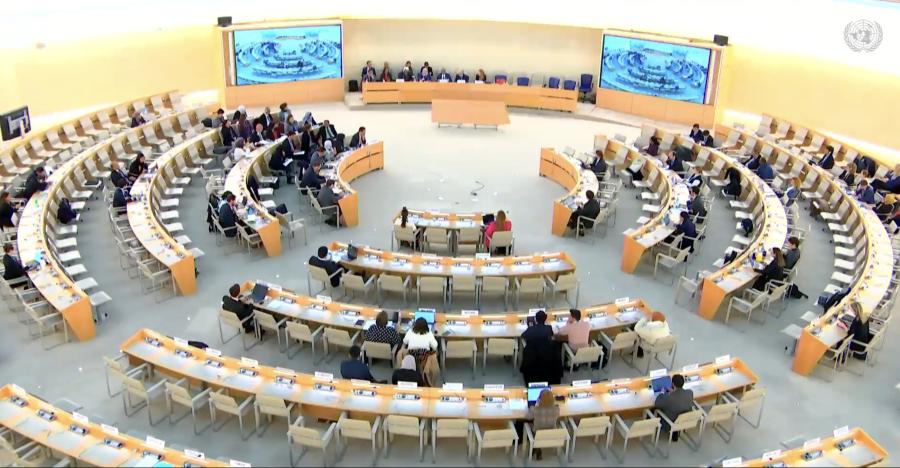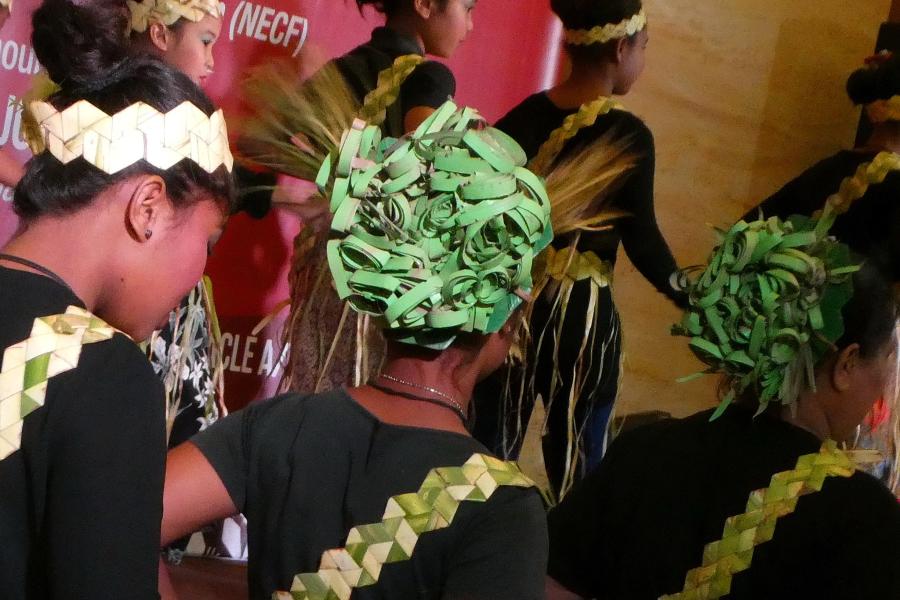Bruno Manser, a forty-six year old human rights activist from Basel Switzerland, disappeared in late May of last year in the province of Sarawak, located in East Malaysia on the island of Borneo. Manser, who for ten years has fought diligently for the cause of the indigenous Penan in their ongoing struggle against large-scale logging in the oldest tropical forest on earth, leaves few clues to his whereabouts.
Bruvno's involvement with Sarawak's indigenous peoples movement began in 1984, when he accompanied a caving expedition to Sarawak's Gunung Mulu National Park. Captivated by Penan culture, Manser quite simply separated from his team of speleogists and wandered into the lives of the jungle nomads. lie lived among them for six years. Over time, he mastered their survival skills, customs, and language. He also made hundreds of detailed illustrations of Penan life, culture, and tradition, and eventually became known as Laki Penan (Penan man).
By the mid 1980s, anxious to shed its status as a third world nation, Malaysia discovered the ecomomic potential of exporting Sarawak's most exploitable resource: tropical hardwood. It wasn't long before the logging companies invaded Penan territory. Manser then became an important asset to the Penan. He was knowledgeable in Western law and politics. His ability to read and write English proved indispensable during legal battles. Manser was a connection to the outside world; he became something of an ambassador. Through him, international awareness of the Penan plight grew steadily.
As the logging companies destroyed the forests the Penan depend on for their livelihood, several Penan headmen appealed to the loggers and to local government officials. Their verbal and written complaints argued that logging companies were encroaching on territories given to the Penan in an earlier treaty, in violation of their Native Customary Rights (NCR). The Penan furthermore maintained that they were never consulted before the logging began. Meanwhile, the bulldozers and chainsaws kept their children awake with fear at night. In the end, they realized that their appeals had fallen on deaf ears.
In 1987, believing the situation to be desperate, the semi-settled and nomadic Penan initiated a series of often dramatic and internationally publicized road blockades along various logging arteries in the upper Baram of Sarawak. These protests, though entirely peaceful in nature, infuriated the private logging companies and the governments of Sarawak and Malaysia. Sarawak's Chief Minister Abdul Taib Mahmud, responsible for approving and denying logging licenses to all of Sarawak, had his personal fortune at stake. He declared Bruno Manser an "enemy of the state" and dispatched a Malaysian commando unit to find and capture him.
Fortunately, Manser escaped Sarawak before the military could get to him. He concluded that he could do more good for the Penan outside of Malaysia, and returned to Switzerland in 1990. In his home town of Basel, he founded the Bruno Manser Fonds (BMF), a nonprofit organization dedicated to the plight of the Penan. Bruno has since organized several non-violent protests in Europe, including hunger strikes and letter-writing campaigns. He succeeded in convincing 241 Swiss municipalities, roughly one-third of the population of Switzerland, to boycott tropical timber.
Manser several times traveled (illegally) to Malaysia, each visit with the intention of making peace with Chief Minister Taib Mahmud and offering his services in the realization of the Magoh Biosphere Reserve, an environmental "no intrusion" zone introduced in 1990 in an effort to quiet international protest. To this day, however, the biosphere exists only on paper. Meanwhile, the giant trees within its proposed boundaries are being felled at an appalling rate. Manser's every attempted meeting with the Chief Minister of Sarawak has ended in his arrest and deportation to Switzerland.
On February 15th of the year 2000, feeling desperate that the last remaining tract of untouched rainforest was about to be sacrificed to the chainsaws and aware that Penan culture will disappear if their rights are not respected and protected, Bruno Manser left switzerland for Indonesian Borneo with a Swedish film team and a colleague. From the province of Kalimantan, they succesfully crossed the Indonesian-Malaysian border into Sarawak. The film team eventually left Borneo and Bruno set cut alone for one of the last remaining nomadic Penan groups. Nobody has heard from him since.
The Penan have continued the fight for their sacred forests. In mid-August, more than 100 Penan from the Tutoh and upper Apoh regions erected a blockade to stop the invasion of three illegally operating logging companies. On October 7th, another one hundred nomadic and semi-nomadic Penan from several settlements in the Long Lunyim, Long Belok, and Long Sayan regions erected barricades on a logging road. Their future hangs precariously on Taib Mahmud's decision either to follow through with or extinguish any plans for the realization of the Magoh Biosphere Reserve.
As for Bruno Manser, Swiss diplomats are now involved in the search. In mid-November his foundation (BMF) and his family formally requested that the Federal Department of Foreign Affairs (EDA) in Switzerland report Bruno as a missing person and ask the Malaysian authorities for help. Malaysian officials assured Swiss ambassador Rudolf Staub that Bruno is not imprisoned in Malaysia and that he would be deported immediately as soon as they locate him.
Perhaps Manser is in hiding. Perhaps he is incarcerated. Or perhaps the same authorities pledged to locate him are responsible for his death. Regardless of his whereabouts, NGOs Such as Bruno Manser Fonds will fight to bring attention to the logging laying waste to the final forest paradise of the Penan.
Article copyright Cultural Survival, Inc.


